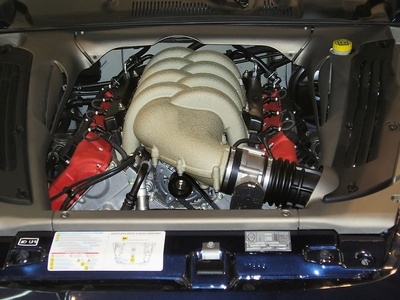
Determining the condition of a vehicle's engine can be tricky because there are so many different components. Even when an engine seems perfectly fine and is running well, it may still experience problems due to a component breaking without first giving warning signs. However, there are a number of different things to look for that can indicate if a vehicle is experiencing any kind of mild to severe engine problems. Engines are expensive to replace and vehicles are essentially useless without a good engine, so it is important to keep your engine as healthy as possible and make repairs as needed if you suspect there is a problem.
Check the vehicle's fluids. Fluids are one of the most efficient indicators of the condition of an engine. The oil should be brown, translucent and full. It should not smell burnt or be milky, clumpy or discolored, all of which are signs of potential engine problems. Coolant should be full and contain antifreeze, which is typically green in color.
Look for leaks. Leaks are a sign that something is amiss with the vehicle or engine. Have a trusted mechanic examine any area of the engine where you see fluid accumulating. Park the vehicle on a relatively clean concrete parking slab and leave it there over night. You will be able to see areas where there is significant fluid leaking out of the next morning because the fluids will have pooled on the concrete under the leak.
Start the car. Car should start easily without struggling, banging or stalling. Listen to the engine run. The engine should not make any tapping, knocking or pinging noises, nor should it smoke. Watch the exhaust and check to see if an unusual amount of emissions gas is being emitted. Emissions gases should be relatively clear and unnoticeable, not white, black or blue. Car should hold a steady idle.
Drive the car. Pay attention to how it accelerates, stops and maintains speed. Listen for any strange knocks, bumps or squeaks. Pay attention if the car hesitates or seems to struggle in any way. Watch gauges carefully, making sure all stay within normal range while operating. Operate vehicle at a variety of speeds for at least 30 minutes to make sure you have plenty of time to warm up and thoroughly evaluate the vehicle's condition.
Take the car to a mechanic and have a compression check performed on the engine. The compression check measures if the engine has correct pressure. A loss of compression in an engine is a warning sign of serious problems, including problems with the rings, cylinders or valves.
If any dashboard error lights are on, have mechanic attach a code reader to the vehicle's computer and scan it for error codes to reveal problems.